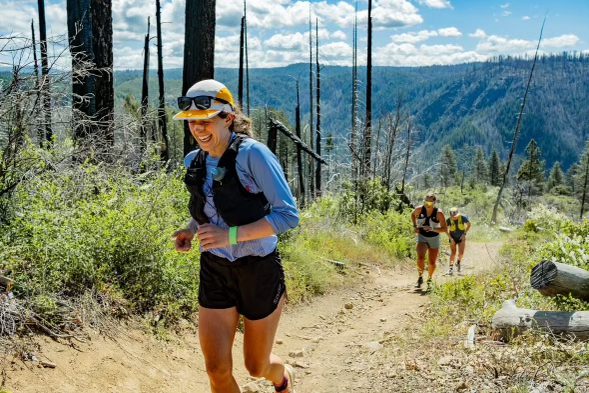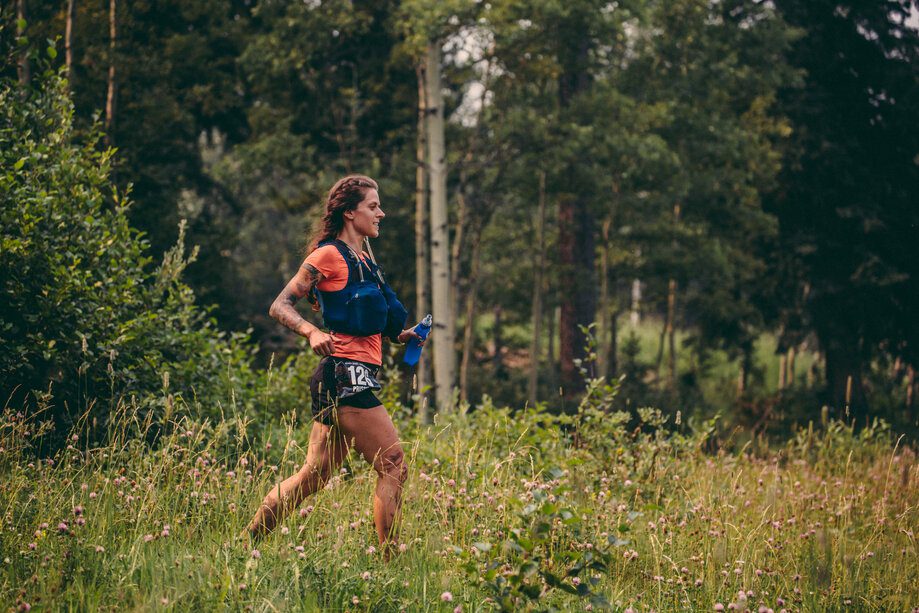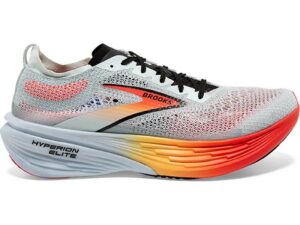Canadian ultra-star Priscilla Forgie is ready to crush Western States 100
Here are some things Forgie is doing in training to help ensure a strong performance at States–tips you can incorporate into your own training
 Photo by:
Kevin Lara @kevinlaraphoto
Photo by:
Kevin Lara @kevinlaraphoto
Edmonton’s Priscilla Forgie is blazing a trail in Canadian ultrarunning, and she’s primed for one of the biggest races of the year—Western States 100-miler, set for June 29th. Having finished as the top Canadian in last year’s race (she finished eighth among the women), Forgie is back, even more prepared and ready to tackle the course in Auburn, Calif. Her secret? Three specific strategies that can benefit any runner aiming to elevate their performance.
Forgie has dominated numerous races in recent years, with victories (and the course record) at the Squamish 50-mile and 50/50, an overall win (with a course record) at the Near Death Marathon in Grand Cache, Alta. and a recent third-place finish at the Chuckanut 50K in Fairhaven, Washington. Here’s how she’s preparing for Western States 100 and how you can apply her methods to your own training.
View this post on Instagram
Arrive early and acclimatize
“Last year, I was told I looked better at the 100K mark than at 50K! The elevation in the high country kicked my butt, so I arrived a bit earlier this time around to adjust,” Forgie shares.
Altitude can be a game-changer in endurance races. If your race is at a higher elevation than you’re used to, plan to arrive several days (or even weeks) early if at all possible, to give your body time to acclimatize. If you’re unable to spend extra days at altitude, make sure to incorporate lots of elevation gain into your training runs and consider practising breathing techniques to help reduce respiratory fatigue.

Embrace the (hot) discomfort
“I knew last year’s weather was an anomaly, so I spent a lot more time heat training this time around—meaning many uncomfortable bath and sauna sessions!” Forgie explains.
Heat can be a formidable adversary in long races. There are several methods to help your body adjust to the heat; consider seeking the input of an experienced coach or sports medicine professional and make sure you are hydrating before, during and after your training. Run during the hottest part of the day, wear extra layers to increase your body temperature and use saunas or hot baths to get your body accustomed to higher heat levels. This helps improve your body’s ability to cool itself and maintain performance in the heat.
Dial in your nutrition
“This year I’ve taken fuelling a lot more seriously, focusing on getting my gut used to how much it truly requires for the distance I’m embarking on and dialling in my nutrition and hydration,” Forgie notes.
Proper fuelling and hydration are crucial for endurance events, and getting enough calories can be particularly challenging during warm races. Forgie recommends experimenting with different types of fuel during your training to find what works best for your body. Practise eating and drinking on the run to train your gut to handle the intake without discomfort.
Forgie will be paced at Western States 100 by Abbotsford, B.C.’s Jenny Quilty, who recently took sixth place at Gorge Waterfalls 100K in Oregon in 10:54:22, and ran to fourth at the highly competitive 2024 Black Canyon Ultra in California in mid-February. For more information about Western States 100 or to check out results next weekend, head here.


